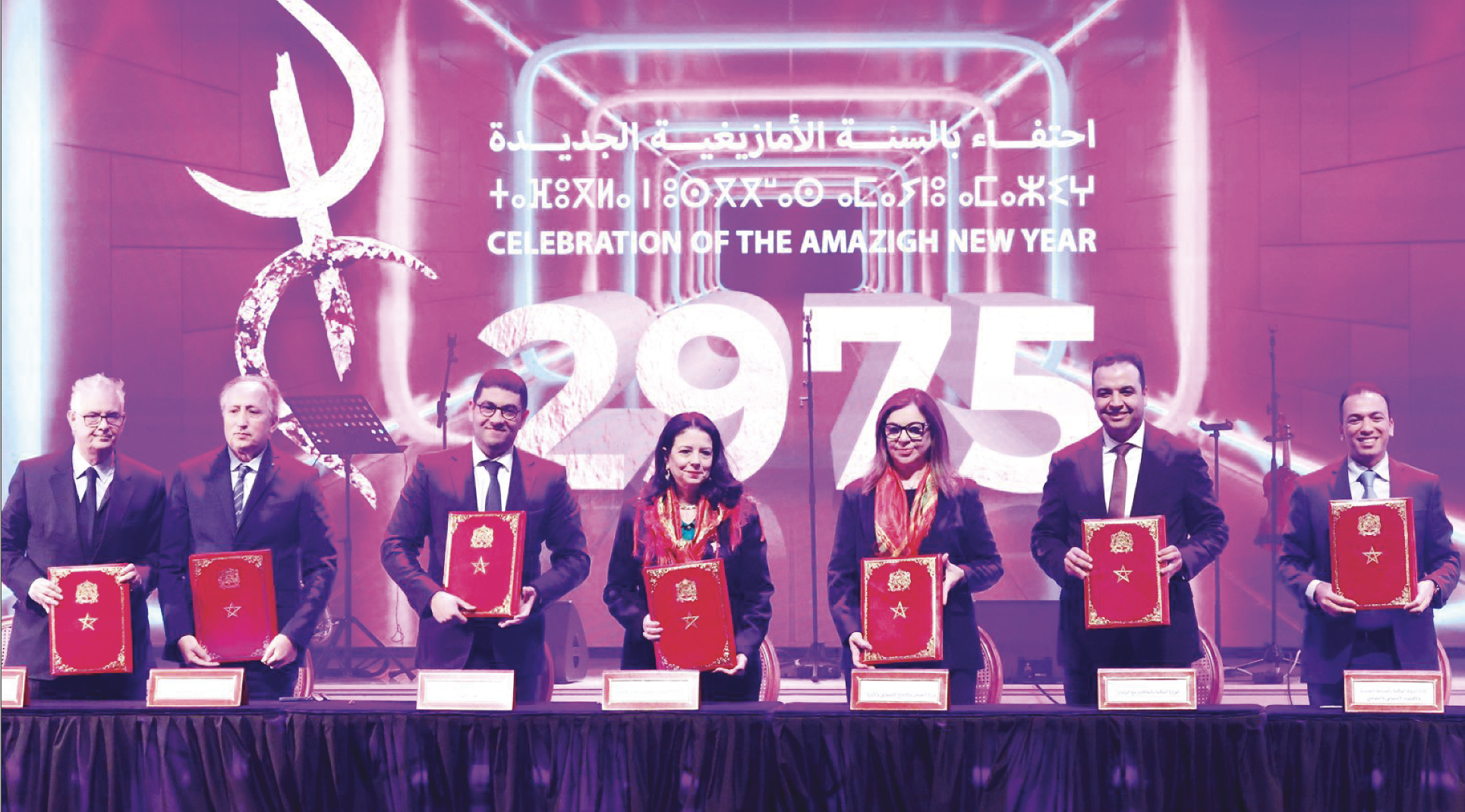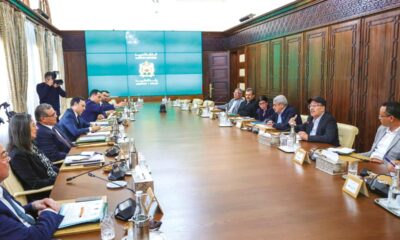Influences
Amazigh New Year: Moroccans Are Acquiring a Taste for It
Across the Kingdom, celebrations of the Amazigh New Year have been organized over several days. Simultaneously, concrete actions have been taken by the government to promote the use of the Amazigh language in public life.

For the second consecutive year, the Amazigh New Year is celebrated by all Moroccans as an official national holiday. Celebrations spanning several days took place across the entire Moroccan territory, from north to south, as well as abroad in Paris, Tarragona, and elsewhere.
This historic event is now celebrated by various institutions and administrations, including abroad, as noted by the rector of IRCAM, Ahmed Boukous.
“The celebration of the Amazigh New Year is an opportunity to showcase a cultural heritage embraced by all Moroccans,” said Aziz Akhannouch, who participated in the festivities in Agadir, where the program launched on the 10th covers 12 locations, including public squares, gardens…
The Head of Government also expressed “profound gratitude to His Majesty King Mohammed VI, who decided to establish January 14th, corresponding to the first day of the Amazigh year, as an official holiday in Morocco, within the constitutional consecration of the Amazigh language.” He emphasized that the government “is committed to strengthening the implementation of the official status of the Amazigh language.”
On January 14th, Akhannouch presided over a ceremony in Rabat for the signing of two agreements between the Ministry of Digital Transition and Administrative Reform and several government departments and public institutions.
It is a framework agreement of the governmental program concerning the implementation of the official status of the Amazigh language and a convention aimed at strengthening reception, orientation, and advisory services in this language.
The New Year is certainly a time of celebration, but also an opportunity to assess progress in the officialization of the Amazigh language, including the expansion of its teaching and its use in public administration.
In this regard, the Minister of National Education, Mohamed Saad Berrada, highlighted, during his appearance at the Chamber of Representatives, within the weekly session of oral questions, that “over 3,000 primary school bilingual teachers will receive training to accelerate the generalization of teaching the Amazigh language.”
The Minister also mentioned that a total of 650,936 students are currently studying Amazigh in 3,400 primary schools. “This figure represents a coverage rate of 40% across all primary educational institutions, with 3,400 teachers delivering Amazigh language classes,” he explained.
He noted that the number of Amazigh language teachers increased from 200 in 2021 to 600 in 2022, then to 1,200 the following year, reaching 1,850 in 2024
A step forward
The same trend has been observed within the public administration. The Minister Delegate for Digital Transition and Administration Reform, Amal El Fallah Seghrouchni, emphasized that “the promotion of the Amazigh language is a national and collective responsibility,” ensuring that the government places great importance on implementing the provisions of the Organic Law and integrating it into education and priority areas of public life.
Several concrete measures have been taken, including the deployment of 464 Amazigh-speaking agents in the Kingdom’s administrations, ensuring better communication with citizens. Additionally, 69 Amazigh-speaking agents have been mobilized in 10 call centers.
Furthermore, the Ministry ensured the integration of the Amazigh language in 3,000 signs and signage panels to solidify its presence in the visual identity of public administrations. “A significant step to strengthen the position of the Amazigh language in the public space,” noted the Minister, while mentioning an ongoing study to assess its integration level on the official websites of 158 public administrations.
The process continues, as in 2025, the Ministry plans to recruit 1,684 Amazigh-speaking agents for reception and guidance in 19 ministerial departments. This is in addition to supporting local authorities in the integration of Amazigh, with a pilot project involving 40 municipalities launched for this purpose.
This demonstrates, according to the Minister, “the serious commitment and continuous cooperation of all public administrations in implementing this important project, as evidenced by the signing of several partnership agreements aimed at enhancing the integration of the Amazigh language in various fields.”
The development of training modules meeting the expectations of ministerial departments has been carried out with the contribution of IRCAM. The implementation of the official status of the Amazigh language “is experiencing momentum across all public administrations, as evidenced by the ongoing commitment and cooperation of various departments,” as noted by the institution.
The government, the minister believes, “gives top priority to implementing the provisions of the Organic Law establishing the process for the official status of the Amazigh language and its integration into education and priority areas of public life.”
Municipalities are also joining the effort
Several initiatives have been taken at the level of municipalities located in regions with a strong Amazigh-speaking population to promote the Amazigh language and culture.
As a result, the Amazigh language and script have found their place in public signage and displays, including road signs. This observation dates back several years. Today, other local authorities are following this trend.
In the city of Tangier, for example, the Municipal Council has announced a series of measures to promote the use of Amazigh in the administrative services of the Municipality. In this regard, the Council has emphasized the enhancement of Amazigh language reception services within the municipal administrative services, as well as the gradual adoption of the Amazigh language in the city’s signage and displays.
It has also been decided to incorporate the Amazigh language into the Municipality’s online platforms and websites to facilitate access to information and services.












